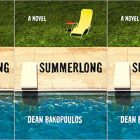MFAs Do It Best: Your Graduate Degree in the Workforce
When I graduated with my MFA this past May, I got a decent-paying job and the hell away from academia. I’d taught for four semesters and knew I didn’t want to do it anymore. I also knew that I had to get out of New Orleans, where the job market is hollow in the best economies. I had no service industry experience and there really wasn’t much else in the city for me in terms of work.
Fortunately I found a job in Chicago that I thought I wouldn’t hate too much, one that would also give me time to work on writing projects nights and weekends. I’ve been doing it since August with moderate success—and strangely enough, I’ve found that my MFA prepared me well for my new office workplace.
Above all the MFA prepared me to read and write, of course. No one does words better and with more consideration than an MFA, and I think more companies should look to writing program grads to fill vital roles such as public relations. MFA students may also sell themselves short by not trying to fully sell their own skill sets. Thanks to my degree, I can produce large quantities of accurate, readable text and zip through anything my work requires me to read.
While this is an obvious benefit of getting an MFA, though, the more useful skill I acquired is a concept I like to call “The Taming of the Ego.” Office politics exist in any workplace with two or more people, and they often resemble the negotiations that take place within writing workshops.
Workshop for me was a process of learning to understand the strengths and weaknesses of my writing based on what classmates said (or didn’t say). By learning how to distance oneself from my writing (peeling the ego gently back from the words), I learned—as all successful MFA students eventually do—how to see text more objectively. Ideally, writers find the correct balance between Lebowski-style, fuck-it-dude apathy and Gollum-esque, myprecious attachment to their own work.
Workshop also taught me how to detach myself from critiques of my classmates’ writing. No matter what I said in class or in written critiques, some writers continued to dangle gerund phrases, use too many commas, and begin their stories with a line of disembodied dialogue. What I finally came to learn was: that’s fine. It was their writing, not mine. It wasn’t for me. There was no reason to get indignant or angry or even frustrated. (This was an acquired skill for me, not a natural reaction.)
And that’s what’s been useful for me in the workplace. The MFA helped me further develop my ability to work on group projects by enabling me to table and tame my ego when necessary. At work, it’s easy for me to recognize when to invoke my own ego in my work and when to restrain it. The final product almost always isn’t mine, so it needs to be done to fulfill some common goal and not to make me happy.
MFAs can more easily recognize when they have ownership over a collaborative project. When a written product is theirs to own and bend to their ego, they do as they see fit—but MFAs also know when to withdraw a full emotional and editorial investment in order to benefit the workshop or the work team.
This is, of course, an ideal way of looking at the workshop. Not everyone emerges as enlightened (or as modest, *cough*) as I have. Some people will continue to be assholes as workshop participants—and as coworkers—because they can’t help but rub their dirty fingers over every detail. We can make an effort not to let these people get us down.
So if you ever feel like you’re grinding against a boss or a coworker, I recommend closing your eyes, taking a deep breath, and chanting my personal version of the Serenity Prayer:
Grant me the serenity to accept the things my boss makes me change,
The courage to do my best in a less than ideal workplace,
And a bonus in December to remind me that my fiction is my own.



